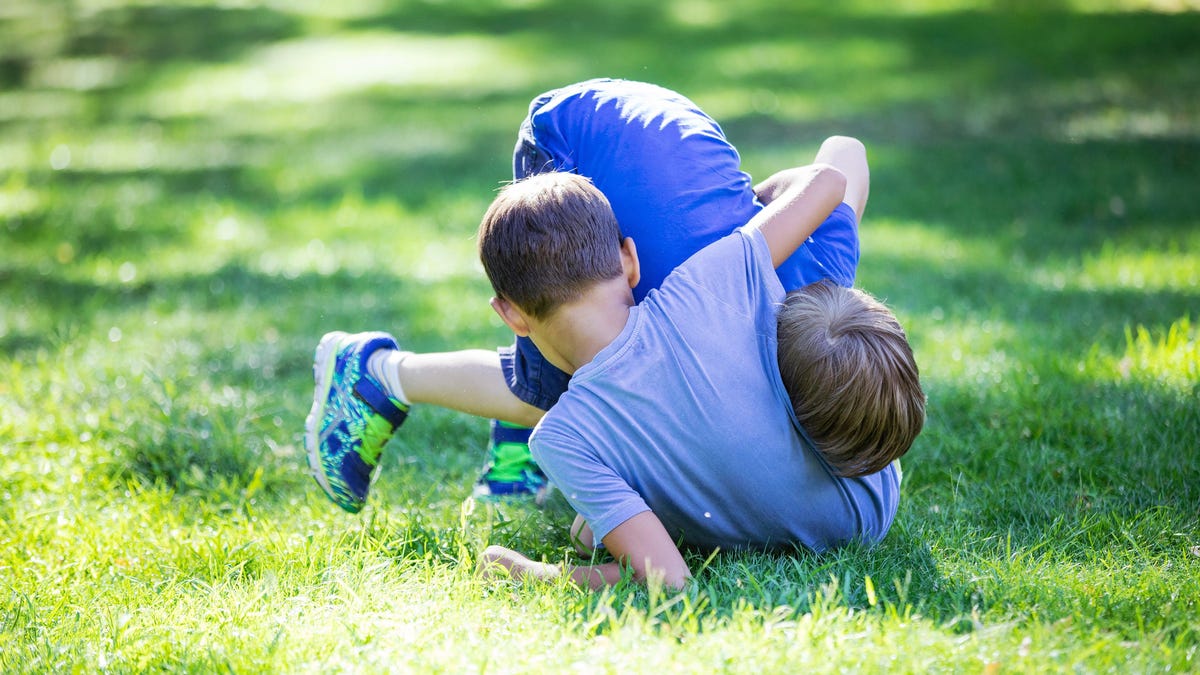What to Do If You Don’t Like Your Child’s Annoying Friend

Maybe they forget to take off their shoes when they come to your house, or they never say “please” or “thank you.” Perhaps you don’t like the language they use or the way they speak and act around your son or daughter. Once he’s on your crappy list, it can be difficult for that friend to win your favor again. To help you deal with an annoying situation, here are some tips to help ease the tension when you just don’t like little Billy.
Help children be critical of their friendships
Clinical psychologist Dr. Eileen Kennedy-Moore, author of the forthcoming book Growing Feelings: A Children’s Guide to Dealing with Emotions About Friends and Other Children , recommends that parents ask their child what qualities they like in their friend. Try asking questions like this: What do you like most about them? What do you like to do together? What do you usually feel when you are with this friend?
Parents also want to help their child be critical of relationships. Sometimes kids end up with a not-so-good friend because they feel like they don’t have any other options. Bad behavior can happen because your child hasn’t learned to set boundaries.
“It’s worth talking to your kids about what you think it means to be a good friend,” says Kennedy-Moore. “Your goal is not to insist that your child admit that this child is a terrible person, but simply to think things through.”
Don’t force your child to end friendships
If you catch your child’s friend breaking one of your house rules, you should say something about it without being a bad host. You can calmly tell a friend what he should do, not what he should not do. Another option is to discuss it alone with the child after the friend has left.
“You can say, ‘Did you notice this? What do you think about it? Why do you think we don’t do this in our family,” says Kennedy-Moore. “Make your child think without telling or forcing the child to say that his friend is a bad person.”
Kennedy-Moore says a common mistake parents make is not allowing their child to date friends they don’t like. There is a good chance that your child will run into them at school or at the bus stop, which will put them in an awkward position.
“One of the few places where kids have autonomy is in the friends they choose,” she says. “We don’t want to step on it if we can help.”
How to meet your child’s friend
If you get to know your child’s friend a little better, you can see for yourself what your child sees in him. Finding their pleasant qualities can help you put your annoyance into perspective. However, you probably have enough trouble getting your own kids to talk about their day that it can be difficult for you to get their friends to talk to you. Kennedy-Moore says getting along might be easier than you think.
“It’s usually activities that get a baby that you can talk about,” she says. “It also depends on what kind of questions you ask. Maybe if you notice that their t-shirt reflects some of their interests, it might be easier. Maybe you know that they started playing [sports] and you can ask them about it.”
If you really don’t like your child’s friend (or the way they treat your child), you can suggest an alternative. Dr. Kennedy-Moore suggests having play dates or family play nights with another friend.
“Sometimes after dinner I would invite another family,” she recalls. “We played a game and then we ate dessert. Then the parents chatted, and the children went to play.
Remember Childhood Friendships Are Learning Experiences
Your child is trying to learn basic social skills like kindness and empathy, and it’s easy to forget that this applies to everyone at his age. Relationships are complex and it takes time to sort them out. Kennedy-Moore recommends looking at the other child with empathy. If we can understand what our children like about them, it will be easier for us to treat a friend with a kinder attitude. If your child’s friend is not being violent or putting your child in danger, try to be more patient with them.
“Development is on our side,” says Kennedy-Moore. “Whatever happens to friendships, your child will learn that they don’t want to be friends with someone like that, and how to deal with the situation when another child bosses them around.”